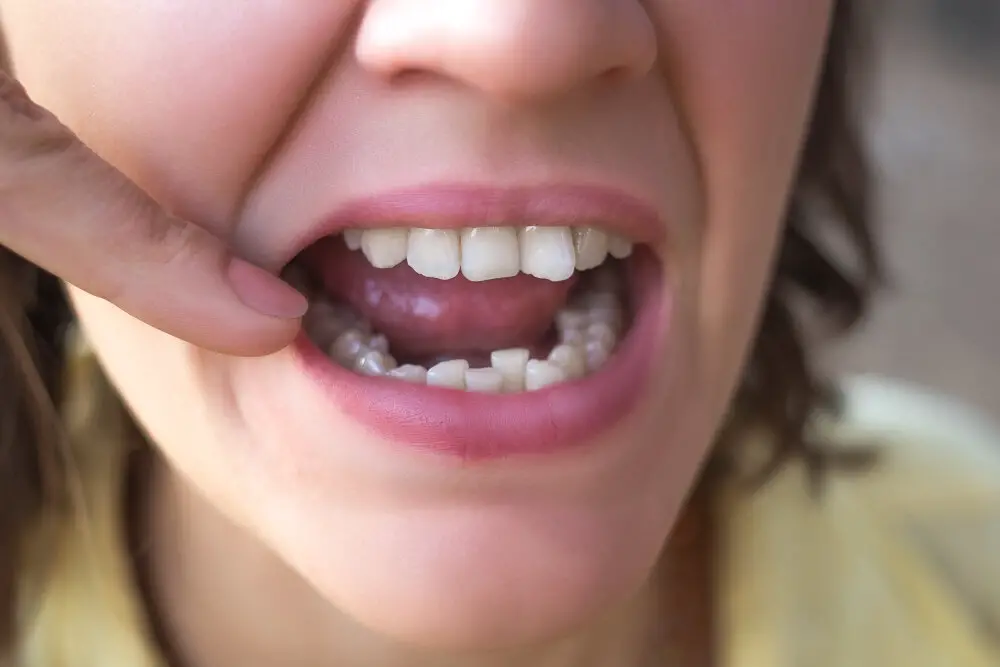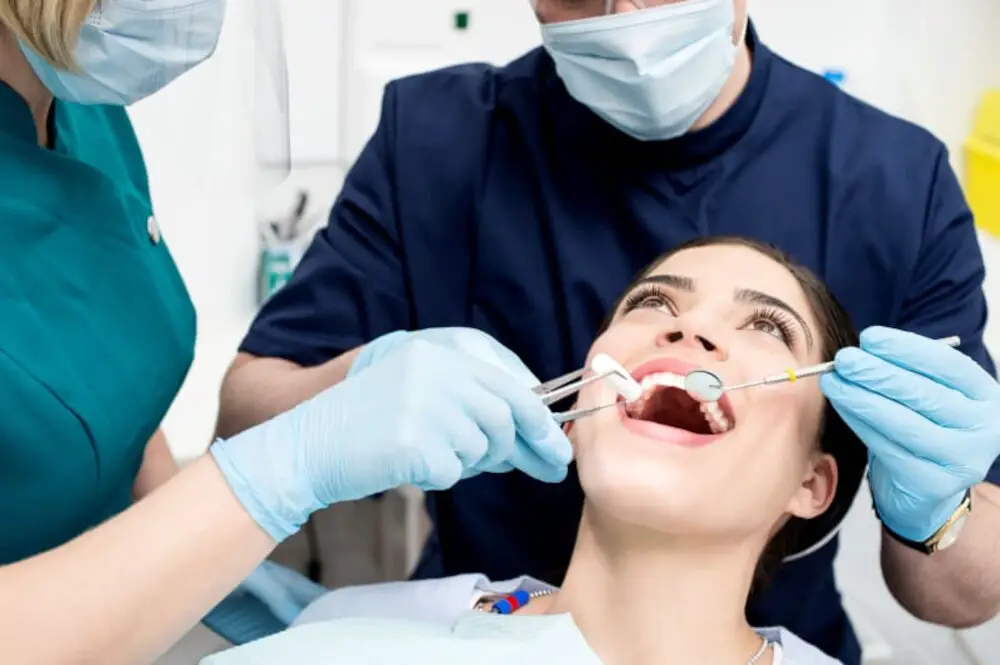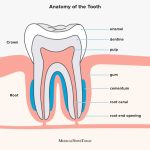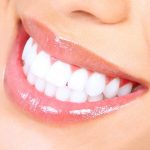Sudden Teeth Sensitivity: Understanding the Causes and Remedies

Sudden teeth sensitivity can be an uncomfortable and painful experience for anyone. It occurs when the protective layer of the teeth, known as enamel, wears down or the gums recede, exposing the sensitive nerves inside the tooth. This can lead to discomfort while eating or drinking hot or cold substances, brushing teeth, or even breathing in cold air. Understanding the causes and remedies for sudden teeth sensitivity can help alleviate the discomfort and prevent it from happening in the future. Several factors can contribute to sudden teeth sensitivity, including poor dental hygiene, tooth decay, gum disease, teeth grinding or clenching, and acidic foods or drinks. It is essential to identify the underlying cause of sensitivity to develop an appropriate treatment plan. Remedies for sudden teeth sensitivity can range from simple changes in dental hygiene habits, such as using a soft-bristled toothbrush and avoiding acidic foods, to more advanced procedures, like dental bonding or root canal therapy. By taking steps to understand and address the causes of sudden teeth sensitivity, individuals can maintain healthy and comfortable teeth for years to come.
Sudden teeth sensitivity is a common dental condition that causes discomfort or pain in the teeth when exposed to certain stimuli. This condition occurs when the dentin layer of the teeth, which is the layer beneath the enamel, becomes exposed due to the erosion of the protective layer. This can be caused by a variety of factors, such as brushing too hard, consuming acidic foods and drinks, gum recession, cavities, and even teeth grinding. Sudden teeth sensitivity can cause a sharp or shooting pain that can last for a few seconds or minutes, and it can affect one or more teeth. Fortunately, there are several remedies to alleviate the discomfort, including desensitizing toothpaste, fluoride treatments, dental sealants, and avoiding trigger foods and drinks.
Teeth sensitivity is a common dental problem that affects millions of people worldwide. If you experience sudden sensitivity in your teeth, it may be due to various reasons such as tooth decay, gum disease, or enamel erosion. The symptoms of teeth sensitivity include a sharp and shooting pain while eating or drinking hot, cold, sweet, or sour foods and beverages. In some cases, the pain may be so intense that it can interfere with your daily activities. Other symptoms may include swollen or bleeding gums, bad breath, or a toothache. If you experience any of these symptoms, it is important to visit your dentist as soon as possible to prevent further damage to your teeth and gums.
Causes of Sudden Teeth Sensitivity

Sudden teeth sensitivity is a common dental problem that affects a significant number of people worldwide. It is characterized by a sharp pain or discomfort in the teeth, especially when exposed to cold, hot, sweet, or acidic foods and drinks. The causes of sudden teeth sensitivity are diverse, and they may include tooth decay, gum recession, enamel erosion, teeth grinding, and dental procedures. Tooth decay occurs when the bacteria in the mouth produce acids that dissolve the tooth enamel and dentin, leading to cavities and sensitivity. Gum recession happens when the gums recede, exposing the sensitive roots of the teeth to external stimuli. Enamel erosion is a process that occurs when the tooth enamel wears off due to acidic substances, such as carbonated drinks, citrus fruits, and vinegar-based foods. Teeth grinding, also known as bruxism, is a habit that involves clenching and grinding the teeth, leading to enamel wear and sensitivity. Dental procedures, such as teeth whitening, fillings, and crown placements, may also cause temporary sensitivity due to the exposure of the tooth nerves. Preventing sudden teeth sensitivity requires proper oral hygiene practices, such as brushing twice a day with fluoride toothpaste, flossing daily, and visiting the dentist regularly for checkups and cleanings. Avoiding acidic foods and drinks, reducing sugar intake, and using a soft-bristled toothbrush can also help prevent sensitivity. In case of sudden sensitivity, there are several remedies that can alleviate the pain and discomfort. These include using desensitizing toothpaste, applying fluoride gel or varnish, using a mouthguard to prevent teeth grinding, and avoiding extreme temperatures and acidic foods. If the sensitivity persists or is accompanied by other symptoms, such as swelling, bleeding, or bad breath, it is essential to seek dental care promptly to prevent further damage to the teeth and gums.
Enamel erosion is one of the leading causes of sudden teeth sensitivity. Enamel is the outermost layer of the teeth, and it plays a crucial role in protecting the underlying dentin and nerve endings. However, certain acidic foods and drinks, such as citrus fruits, soda, and sports drinks, can soften and dissolve the enamel, leaving the teeth vulnerable to sensitivity and decay. Additionally, brushing too hard or using a hard-bristled toothbrush can also wear down the enamel over time. To prevent enamel erosion, it’s essential to limit acidic foods and drinks, use a soft-bristled toothbrush, and practice good oral hygiene habits, such as brushing twice a day and flossing daily.
Gum recession is a common dental condition that occurs when the margin of the gum tissue surrounding the teeth wears away or pulls back, exposing more of the tooth’s root. This can be caused by a variety of factors, including poor oral hygiene, aggressive brushing or flossing, gum disease, aging, and even hormonal changes. The exposed roots can lead to sudden teeth sensitivity, as the nerves in the teeth become more exposed to hot, cold, or sweet substances. Treatment for gum recession may vary depending on the severity of the condition, but can include deep cleaning, gum grafts, or even surgery in severe cases. It is important to address gum recession early on to prevent further damage and maintain healthy teeth and gums.
Tooth decay, also known as dental caries, is a common dental problem caused by the breakdown of tooth enamel due to the accumulation of bacteria in the mouth. This can result in the formation of cavities, which are small holes in the teeth that can lead to sensitivity, pain, and infection if left untreated. Poor oral hygiene, a diet high in sugar and carbohydrates, and certain medical conditions can increase the risk of tooth decay. Regular brushing and flossing, a balanced diet, and visits to the dentist can help prevent tooth decay and maintain good oral health. Treatment options for tooth decay include fillings, crowns, and root canals, depending on the severity of the decay.
Teeth grinding, also known as bruxism, is a condition where an individual grinds or clenches their teeth unconsciously, often during sleep or times of stress. The act of grinding can cause damage and wear on the teeth, leading to sensitivity, pain, and even tooth loss over time. While the exact cause of bruxism is unknown, it is believed to be linked to anxiety, stress, and sleep disorders. Treatment options for teeth grinding include the use of mouthguards or splints to protect the teeth, stress-reduction techniques, and in some cases, medication. It is important to address bruxism early on to prevent further damage to the teeth and maintain overall dental health.
Whitening treatments are a popular cosmetic dental procedure that aims to improve the appearance of discolored or stained teeth. Despite its effectiveness in enhancing the aesthetics of teeth, some people may experience sudden teeth sensitivity after undergoing this treatment. The sensitivity may be due to the use of harsh chemicals or abrasive materials during the procedure. To avoid or lessen the discomfort, patients can use desensitizing toothpaste, avoid hot or cold foods and drinks, and maintain good oral hygiene. It is essential to consult a dentist before undergoing any whitening treatment to ensure that the procedure is safe and suitable for your dental health.
Remedies for Sudden Teeth Sensitivity

Sudden teeth sensitivity is a common dental problem that can cause discomfort and pain when consuming hot or cold foods and drinks. Fortunately, there are several remedies that can help alleviate this issue. One of the most effective remedies is to use a desensitizing toothpaste. These toothpastes contain special ingredients that help block the pathways that lead to the nerves in your teeth, reducing the sensation of pain and discomfort. It is important to use the toothpaste regularly to see the best results. Another effective remedy for sudden teeth sensitivity is to avoid foods and drinks that are too hot, cold, or acidic. These types of foods and drinks can cause irritation and inflammation in your teeth, which can lead to sensitivity. Instead, try to consume foods that are at room temperature, and drink water or milk instead of acidic drinks like soda or citrus juices. Additionally, you can try using a soft-bristled toothbrush and brushing your teeth gently to avoid further irritation. If your sensitivity persists, it is important to see your dentist to rule out any underlying dental issues.
Desensitizing toothpaste is a type of toothpaste that can help alleviate the discomfort associated with sensitive teeth. These toothpastes work by blocking the microscopic channels in the dentin, the layer of tissue just beneath the enamel that contains the tooth’s nerve endings. By blocking these channels, the toothpaste can prevent stimuli such as hot or cold temperatures, acidic or sweet foods, and even brushing from reaching the nerve endings and causing pain. Desensitizing toothpaste may take several applications to start working, but with consistent use, it can significantly reduce tooth sensitivity and allow individuals to enjoy their favorite foods and drinks without discomfort. It’s important to note that while desensitizing toothpaste can be helpful, it’s always best to consult with a dentist to rule out any underlying dental issues that may be causing sensitivity.
Fluoride treatments are a preventive measure that can help reduce the risk of sudden teeth sensitivity. Fluoride is a mineral that strengthens tooth enamel, making it less susceptible to damage from acid and bacteria. Fluoride treatments can be applied in a variety of ways, including as a gel, foam, or varnish. Dentists may recommend fluoride treatments for people who are at risk of developing tooth decay or who have a history of sensitive teeth. These treatments can also help to reduce the sensitivity caused by enamel erosion or gum recession. In addition, fluoride treatments are a simple and affordable way to protect your teeth and maintain good oral health.
Dental bonding is a cosmetic dental treatment that involves the application of a tooth-colored composite resin material to repair, restore or enhance the appearance of a tooth. It’s a relatively simple and affordable procedure that can help address a range of dental issues, including chips, cracks, gaps, stains, and uneven teeth. During the procedure, the dentist will first prepare the tooth by roughening the surface and applying a conditioning liquid. Then, they will apply the composite resin material and shape it to match the natural contours of the tooth. Finally, they will use a special light to harden the material and polish the tooth to give it a natural-looking finish. Dental bonding is a quick and effective solution for improving the appearance of teeth and can help alleviate sensitivity caused by enamel erosion.
Gum grafting is a surgical procedure that involves taking tissue from the roof of the mouth or using donor tissue to cover the exposed roots of the teeth. It is typically performed to treat gum recession, which can lead to tooth sensitivity, root decay, and even tooth loss. During the procedure, the dentist will first numb the area and then create a small incision in the gum tissue. They will then carefully graft the new tissue onto the exposed root, securing it in place with sutures. After the procedure, patients may experience some discomfort and swelling, but this can usually be managed with over-the-counter pain relievers and ice packs. With proper care, gum grafting can help reduce tooth sensitivity and restore the health and appearance of the gums.
Root canal treatment is a dental procedure that is performed to treat a severely damaged or infected tooth. It involves removing the damaged or infected pulp from the inside of the tooth, cleaning and shaping the root canals, and filling them with a special material. The procedure is usually performed under local anesthesia and is virtually painless. Root canal treatment is often necessary when a tooth has a deep cavity, a cracked or broken tooth, or has been traumatized. If left untreated, the infection can spread to the surrounding tissues and cause serious complications. While root canal treatment has a reputation for being painful and uncomfortable, modern techniques and anesthesia make it a relatively painless and routine dental procedure.
Prevention of Sudden Teeth Sensitivity

Sudden teeth sensitivity can be a nuisance, especially when it occurs while eating or drinking something hot or cold. However, there are ways to prevent it from happening. One of the most effective methods is to maintain good oral hygiene. Brushing your teeth twice a day, flossing regularly, and using mouthwash can help remove plaque and prevent tooth decay, which are major causes of sensitivity. Additionally, using a soft-bristled brush and brushing gently can prevent the erosion of the enamel, which can lead to sensitivity. Another way to prevent sudden teeth sensitivity is to avoid consuming acidic or sugary foods and drinks. These substances can cause the enamel to wear away, exposing the sensitive dentin underneath. If you do consume these substances, it is best to rinse your mouth with water afterwards and wait for at least 30 minutes before brushing your teeth. This is because brushing immediately after consuming acidic substances can further erode the enamel. Furthermore, wearing a mouthguard at night can prevent grinding and clenching of teeth, which can also cause sensitivity. By following these prevention methods, you can reduce your risk of experiencing sudden teeth sensitivity and maintain good oral health.
Proper dental hygiene is essential for maintaining good oral health and preventing sudden teeth sensitivity. Brushing your teeth twice a day with fluoride toothpaste and flossing daily can help remove plaque and prevent cavities. In addition, using a mouthwash can help kill bacteria and freshen breath. It is also important to visit the dentist regularly for check-ups and cleanings to address any potential issues early on. Avoiding sugary and acidic foods and drinks can also help prevent enamel erosion and tooth sensitivity. By practicing good dental hygiene habits, you can keep your teeth healthy and strong, and avoid sudden sensitivity that can be painful and uncomfortable.
Regular dental checkups are crucial in maintaining good oral health and preventing sudden teeth sensitivity. These appointments allow dentists to identify any developing issues, such as cavities or gum disease, before they become more severe. Additionally, regular cleanings remove plaque buildup and tartar that can contribute to sensitivity. Taking care of your teeth through regular check-ups and daily brushing and flossing can prevent sudden teeth sensitivity and the discomfort that comes with it. It is important to prioritize these appointments and communicate any concerns or changes in sensitivity to your dentist for proper treatment.
Limiting acidic foods and drinks is crucial in managing sudden teeth sensitivity. Acidic foods and drinks can erode the enamel, which is the outer layer of the tooth, and expose the dentin underneath. The dentin contains tiny tubules that lead to the nerves of the teeth, and when exposed, it causes sharp, shooting pain. Examples of acidic foods and drinks include citrus fruits, soda, sports drinks, and wine. Therefore, reducing the consumption of acidic foods and drinks can help prevent the erosion of the enamel and reduce the risk of sudden teeth sensitivity. It is also essential to wait for at least 30 minutes after consuming acidic foods or drinks before brushing, as the acid softens the enamel, and brushing immediately can lead to further damage.
Wearing a mouthguard is crucial to prevent sudden teeth sensitivity caused by teeth grinding or clenching during sleep. This involuntary habit puts pressure on the teeth, causing the tooth enamel to wear down over time, leading to sensitivity. A mouthguard acts as a cushion between the upper and lower teeth, reducing the pressure on the teeth and protecting them from damage. It is essential to choose the right kind of mouthguard, as poorly fitting ones can cause discomfort and even worsen the sensitivity. A custom-made mouthguard can be obtained from a dentist, ensuring a proper fit and maximum protection. By wearing a mouthguard, individuals can prevent sudden teeth sensitivity and maintain healthy teeth for a lifetime.
Sudden teeth sensitivity can be caused by a variety of factors, including brushing too hard, consuming acidic or sugary foods and drinks, grinding teeth, and gum recession. To alleviate the discomfort, one can use desensitizing toothpaste, avoid trigger foods and drinks, and opt for a softer toothbrush. Regular dental check-ups can also help identify and treat any underlying dental issues. Prevention is key to avoiding sudden teeth sensitivity, which includes maintaining good oral hygiene habits and following a balanced diet. Additionally, using a mouthguard to protect teeth from grinding and seeking treatment for gum disease can also reduce the risk of sudden teeth sensitivity.
If you’re experiencing sudden teeth sensitivity, it’s crucial to seek dental advice as soon as possible. Ignoring this issue can lead to severe dental problems, including tooth decay, gum disease, and even tooth loss. Don’t let your dental health suffer in silence; take action and schedule an appointment with your dentist right away. They can identify the root cause of your sensitivity and recommend the necessary remedies to alleviate your discomfort. Remember, your dental health is essential, and seeking professional advice can help you maintain it for years to come.
Conclusion

In conclusion, sudden teeth sensitivity can be a frustrating and uncomfortable experience, but by understanding the causes and remedies, we can take steps to alleviate the pain and prevent it from occurring in the future. Whether it’s practicing good oral hygiene, avoiding certain acidic or sugary foods and drinks, or seeking professional dental treatment, there are a variety of options available to help manage this common issue. By taking care of our teeth and being proactive in our oral health, we can ensure that we enjoy a pain-free and healthy smile for years to come.







